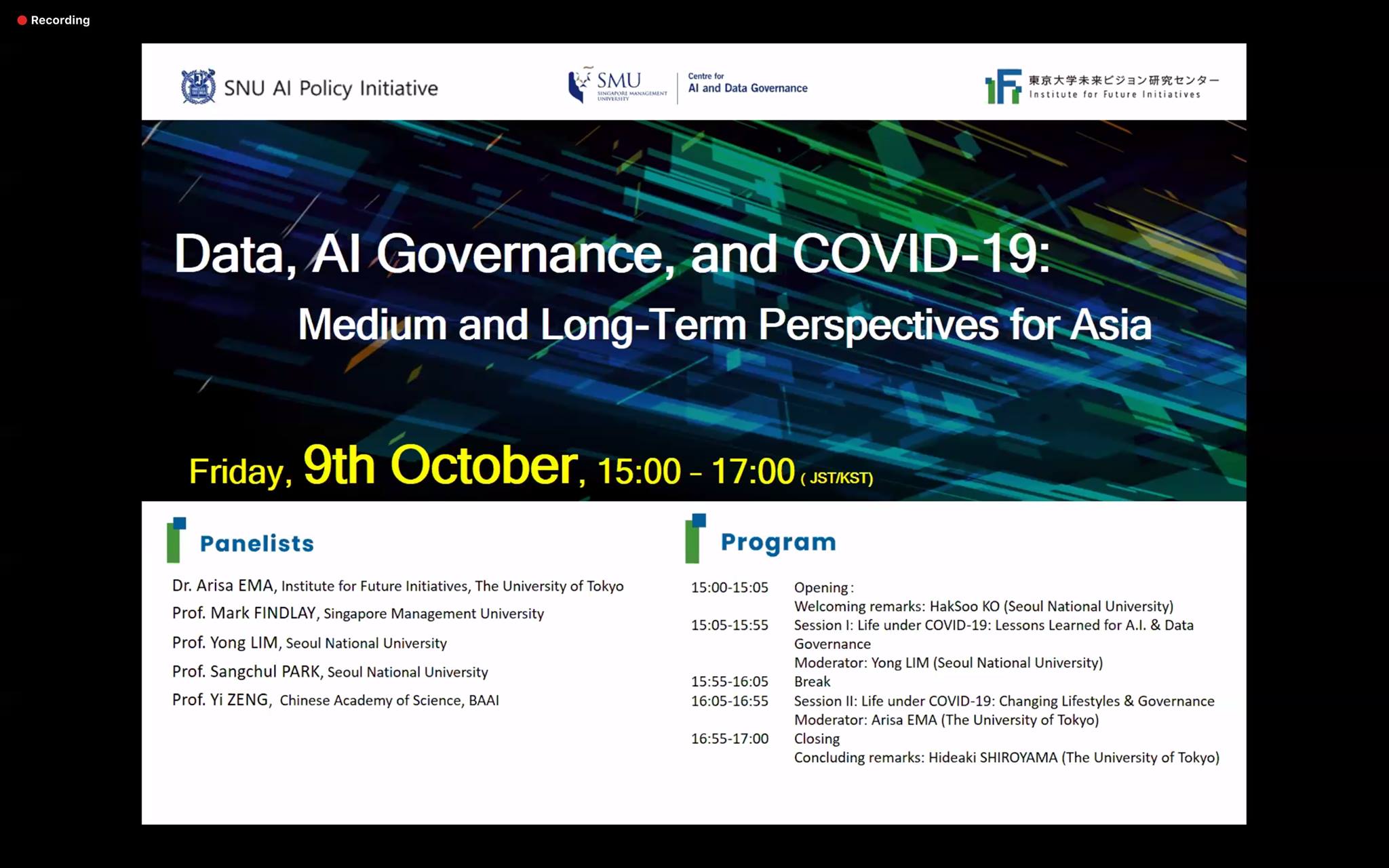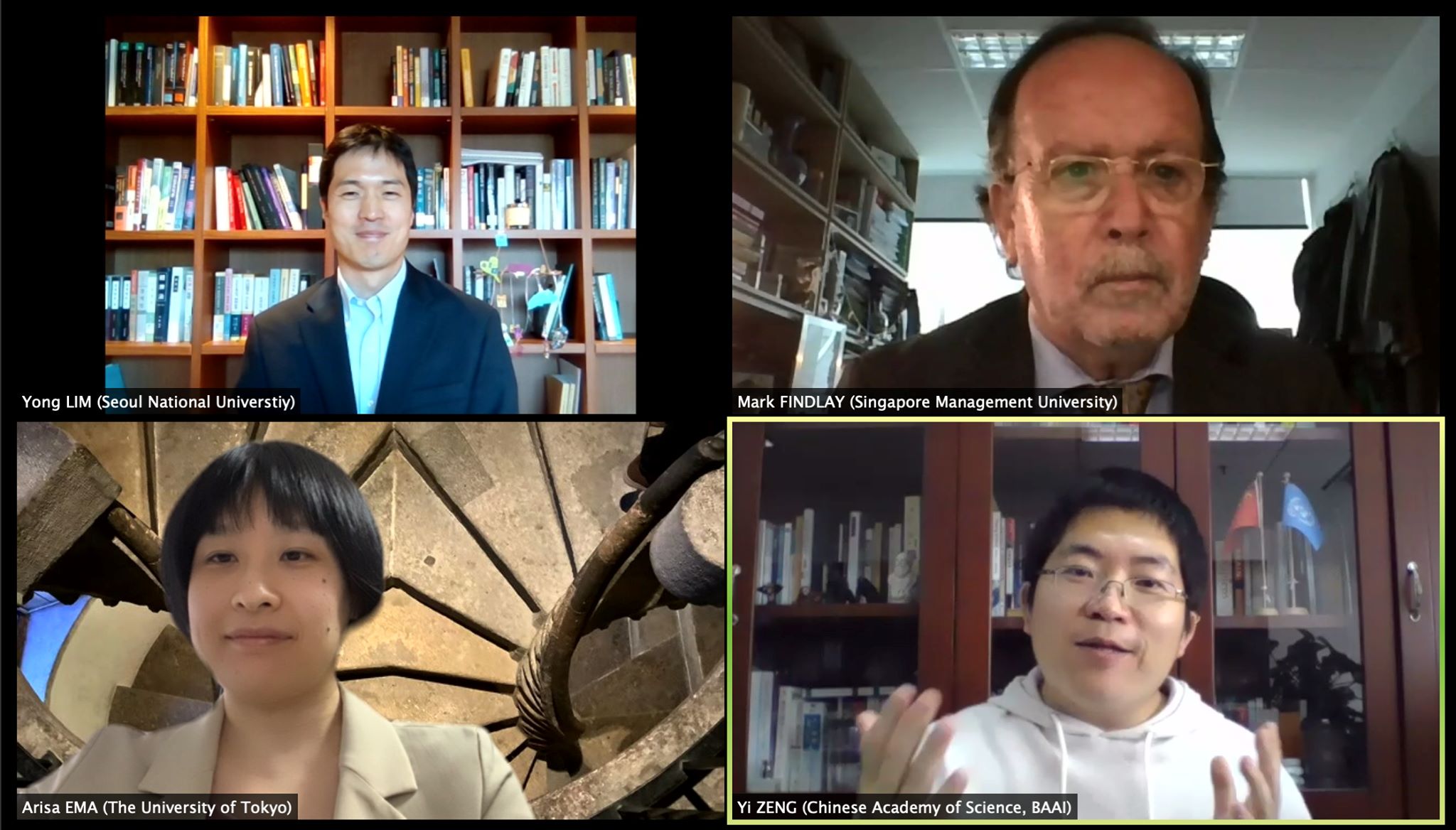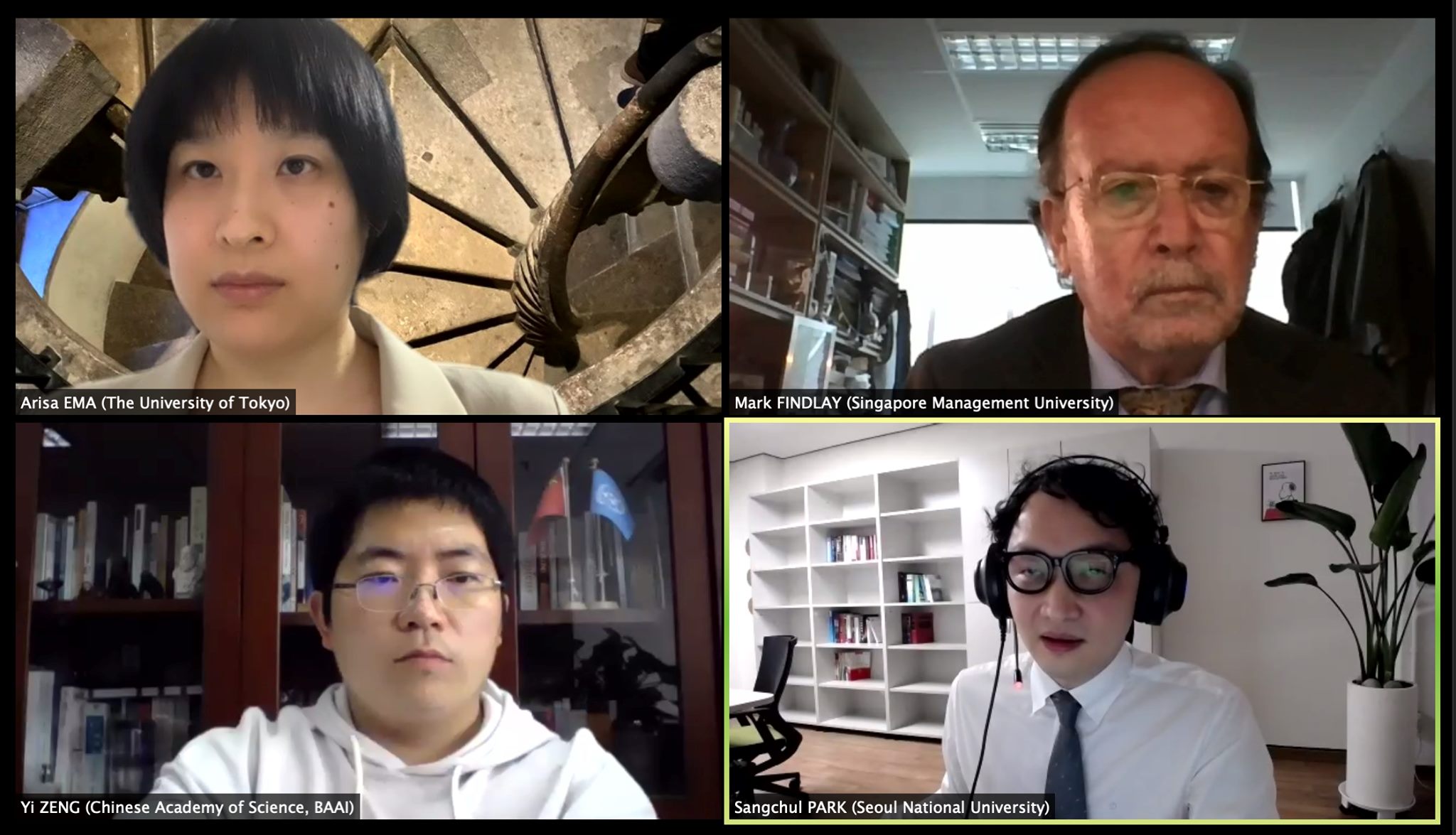
On 9 October 2020, the Center organized and co-hosted a webinar with the AI Policy Initiative (Seoul National University), and the Institute for Future Initiatives (The University of Tokyo) on the topic of “Data, AI Governance, and COVID-19: Medium and Long-Term Perspectives for Asia”. The webinar built on contributions from an earlier joint report published in September 2020 that mapped out China, South Korea, Singapore, and Japan responses to COVID-19 and its potential challenges from an AI, data governance and human rights perspective (https://ifi.u-tokyo.ac.jp/…/uploa…/2020/09/report_200916.pdf).
The webinar started with Prof HakSoo Ko (Co-director, SNU AI Policy Initiative) giving the opening address. This was followed by the session 1 "Lessons learned for AI and Data Governance" moderated by Prof Yong Lim (SNU), panelists included our centre director Prof Mark Findlay, Prof Arisa Ema (University of Tokyo), and Prof Yi Zeng (Chinese Academy of Science, BAAI). The second session on "Changing Lifestyles & Governance" was moderated by Prof Arisa Ema, and Prof Sangchul Park joined the panel. The webinar concluded with Prof Hideaki Shiroyama (Vice Director, Tokyo University Institute for Future Initiatives) delivering the closing remarks.


The panelists shared with participants their further reflections on the employment of these COVID measures, and what this emerging trend of technology and big databases signal for the future of AI governance and ethics. They covered a broad range of topics in the two sessions and weighed in on topical issues concerning #DataPrivacy, #StateSurveillence, #ContactTracingApplications, and #GoodGovernance. Panel members also engaged in a lively discussion on the durability of these COVID measures and highlighted several factors that may run counter to their effective termination in the foreseeable future.
We thank all the panel members and audience for the meaningful dialogue session.
Last updated on 13 Oct 2020 .